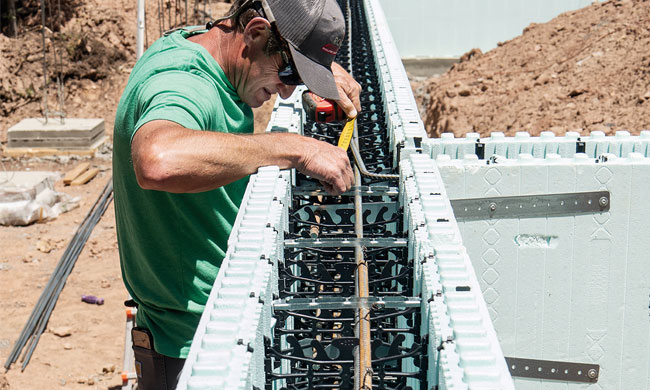Rising fuel costs and increased awareness of society’s environmental impacts have many homeowners looking to leverage sustainable building materials to reduce the amount of energy used to heat and cool their houses. If you’re starting construction on the home of your dreams, consider the benefits of building with sustainability and energy efficiency in mind.
Here are a few tips to follow before beginning to build your sustainable dream home.
Create a Reasonable (and Flexible) Budget
As the first step for any new build, creating a budget that fits your means is critical. Remember, new construction is often a fluid process, meaning you may need to cut back in certain areas to balance out unforeseen costs or desires to go above and beyond on amenities that are important to you.
Hire the Right Construction Professionals
Even if you consider yourself handy or a DIY pro, new construction isn’t a project to go at alone. Do your research on local professionals like architects, contractors and others who are experienced in sustainable construction. Contact trusted friends, family and neighbors for references and read reviews online to gather options before requesting bids or signing contracts.
Start with a Sustainable Foundation
Constructing a sustainable home starts with the foundation. A longer lasting home can begin with strong building materials like insulated concrete forms (ICFs), such as those from Nudura, which provide superior energy efficiency, sound-proofing and lower utility costs versus traditional wood-frame construction. Dual-insulated ICF walls with a concrete core provide high R-values (a measure of insulation's ability to resist heat traveling through it) and thermal mass, as well as disaster-resilient structural support from the foundation to the roof. They even provide architects greater design flexibility to build your dream home according to your desired interior and exterior aesthetic specifications.
Select Eco-Friendly Materials
While installing energy-efficient appliances and high-quality windows and doors are obvious examples of eco-friendly materials, there are other solutions to help you go green in your new home. Consider options like countertops made from recycled glass or reclaimed bricks for fireplaces and accent pieces.
Power Your Home with Renewable Energy
If it’s within your budget, you can take your new home to the next level by powering it with renewable energy like solar or wind. Typically installed on the roof, solar panels harness the sun’s rays and convert that energy to power your home. An additional benefit: You may save money in the long-run on electricity bills.
Prepare for the Unexpected
Project delays, fluctuating costs and more can turn building a new house into an unpredictable process. Don’t let potential surprises deter you from seeking your dream space or forever home. Be prepared for the unexpected so you aren’t caught off guard. In fact, unanticipated circumstances can sometimes be a good thing, like building materials dropping in price, a new product hitting the market or those flashy eco-friendly appliances going on sale.

